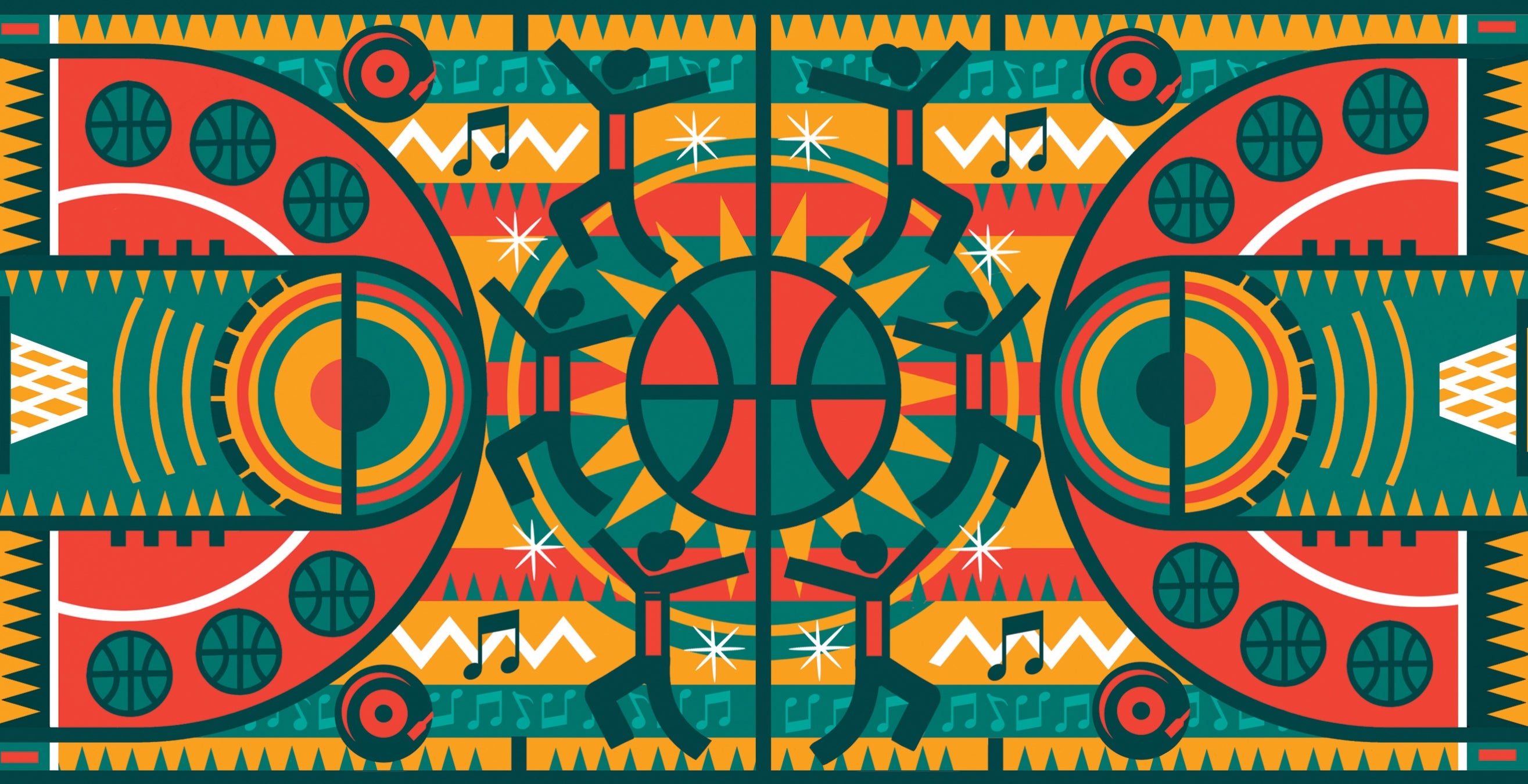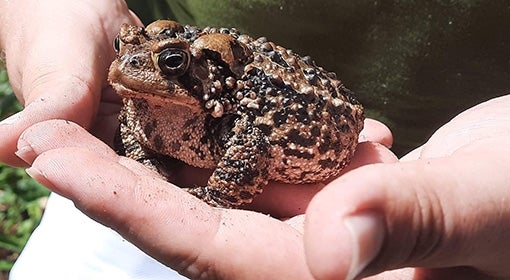The hip-hop music from a recording of Pitt’s marching band fills the room, and immediately Chelsea Adinuba bounces into action. She sways to her right, stretching out both arms, and sways again, this time to her left. She cues the eight young women standing in formation behind her. They catch the beat and follow in precision, gliding through the motions of majorette dance — a blend of jazz, step, lyrical and West African movements.
It’s a Wednesday night in a studio at Trees Hall on the Pittsburgh campus, and the members of the Pitt Pantherettes dance team have gathered to practice. They warm up with stretches and do a round of cardio to build endurance, which they need for their performances at Pitt’s home basketball games. As captain and chief choreographer, Adinuba makes sure to review dances, technique and signals so her team flows as one unit.
A sophomore information systems and health services double major, she started the Pitt Pantherettes in November. It’s the first recorded majorette-style team at the University dedicated to showcasing Black cultural expression, drawing from — and connecting to — the pride, rhythms and traditions often highlighted by dance teams at historically Black colleges and universities.
“I feel as though we’re bringing this example of Black culture, Black history and Black excellence.”
Mimi Incoom
Adinuba grew up in Prince George’s County, Maryland, and has been dancing since she was 3 years old, eventually learning cheerleading, gymnastics and African dance as a young girl.
“Dance,” she says, “is always where my heart has been.”
When she came to Pitt, so did her passion for movement. After taking a jazz dance course at the University, she felt compelled to bring the majorette style of dance to campus, hoping others in the community would enjoy participating. She also believed performances could be a dynamic way to share Black heritage.
Dedra Jones, an administrative assistant in Pitt’s Office for Equity, Diversity, and Inclusion, is the staff advisor for the Pantherettes. She worked with the team, supporting their work to become a registered organization on campus and helping its members make connections to Pitt Athletics, the Black Action Society and the African dance team Ya’baso — organizations that helped them reach audiences and potential participants.
When first-year student Mimi Incoom learned about the Pantherettes, she quickly realized the club could provide her with a sense of belonging on the University’s large urban campus. She especially likes the way the group celebrates diversity at Pitt.
“I feel as though we’re bringing this example of Black culture, Black history and Black excellence,” she says.
If the raucously positive response from the audience on game days is any indication, the Pitt community appreciates what the Pantherettes are offering, too.
Adinuba dreams of expanding the group’s impact by booking more performances at men’s and women’s basketball and perhaps even football games. Ultimately, she wants to ensure the group will continue to thrive, even after she leaves Pitt.
As Pantherettes, we “dance unapologetically,” she says. It’s their way of high-stepping into Pitt history with pride — and a whole lot of style.
This story was published on May 3, 2023. It is part of Pitt Magazine's Spring 2023 issue.





